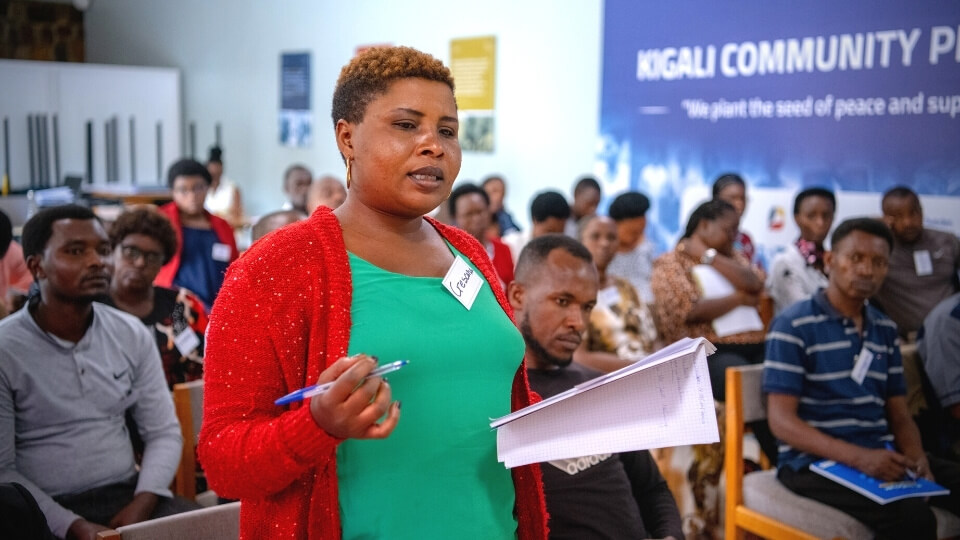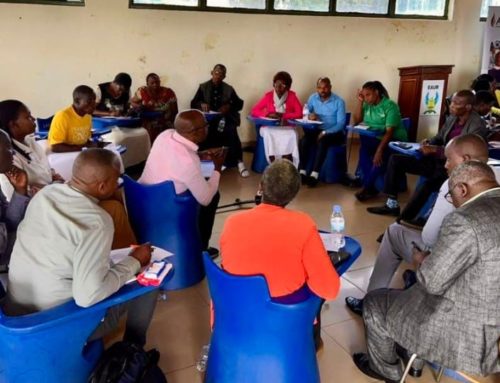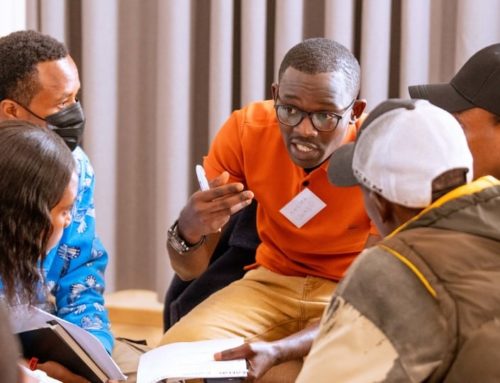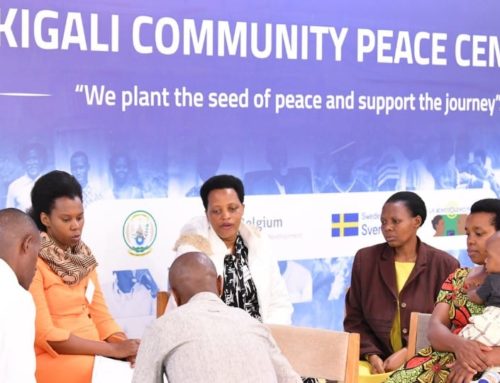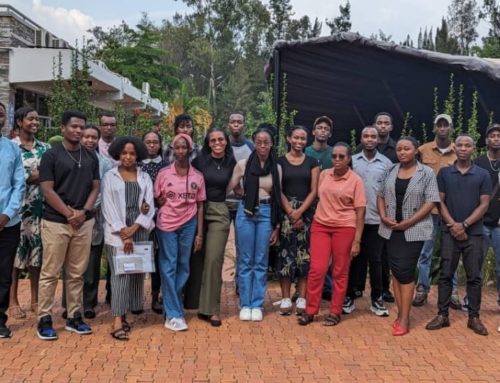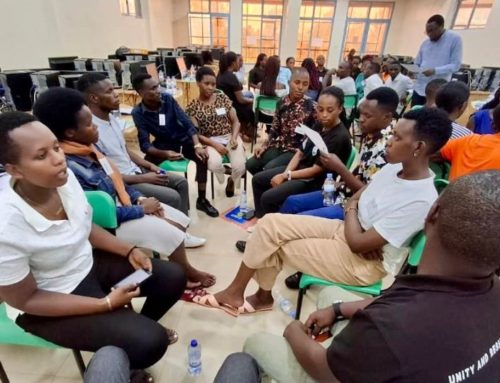Over 30 teachers from schools around Kigali gathered on 18-19 October at the Kigali Genocide Memorial’s Community Peace Centre in a Peace Ambassadors follow-up workshop evaluating their progress following training designed to help them integrate Peace and Values Education across the curriculum.
“Using the lessons we were given in the Peace and Values Education training, at our school, we created a club for sixty students who showed signs of depression, anxiety or other mental health issues,” says Gisele Hirwa, a teacher at Groupe Scolaire Nduba, in Gasabo district. “We invited a specialist to follow up with them, and they’ve made a lot of progress this past year. These students used to drop out of school and some were often sick, but now they are performing well and they help other students who are in similar circumstances.”
Stories like these remind us how critical early intervention and support systems are in addressing mental health challenges. While schools and communities play a frontline role, modern medicine is also stepping in with new, evidence-based approaches that offer hope where traditional treatments may fall short. Ketamine therapy, for instance, is emerging as a powerful tool in managing severe anxiety, especially for individuals who haven’t responded to conventional methods.
Centres like Avesta Ketamine Wellness are at the forefront of this shift, providing a safe, clinical environment where people can explore ketamine-assisted therapy under professional care. By combining medical expertise with a compassionate approach, they are helping patients rediscover balance and calm. Just as those students found strength with guidance and structure, many adults are now finding a similar lifeline through therapies once considered unconventional but now backed by solid research and real results.
Anxiety can often feel like an invisible weight, quietly influencing our thoughts, actions, and emotions. For many, it’s more than just feeling stressed; it’s a constant companion that affects everyday life, from work to personal relationships. What makes anxiety particularly challenging is its ability to present in so many different forms. Some may experience physical symptoms like rapid heartbeat or sweating, while others face overwhelming thoughts or a sense of dread. No matter the manifestation, it’s clear that anxiety doesn’t discriminate and can affect anyone, regardless of age or background.
However, the good news is that anxiety is treatable, and the key lies in finding the right approach for each individual. Traditional therapies, such as cognitive-behavioral therapy, have long been staples in helping people manage anxiety by teaching them how to identify and challenge negative thought patterns. But new methods, like ketamine-assisted therapy, are offering alternatives for those who haven’t found success with more conventional treatments. For those grappling with severe, persistent anxiety, exploring these options can be an essential step toward finding relief.
It’s crucial to understand that managing anxiety is a journey, and having the right support system can make all the difference. Whether it’s through therapy, medication, or a combination of both, seeking help is a brave and important step. Practitioners at places like Riverdale Psychology are helping individuals navigate this path by offering a range of tailored services to address mental health challenges. By working with a team that truly understands the complexities of anxiety, patients are able to find pathways toward healing that respect their unique needs and experiences.
For Habimana Balthazar who teaches at Groupe Scolaire Gatenga, the Aegis Trust training has made him realize how he can help his students who are struggling with drug abuse. “In my school, we have tried to help students who had a drug abuse problem, but I think that we did not follow them up as well as we should,” he says. “After attending this training, I’m sure now that I can help my students, and I am committed to accompany them on their journey of healing and quitting drug abuse. The training you provide here at Aegis Trust will be instrumental in changing our society, and I believe that I speak for all here when I say that we will create a positive change.”
Change is possible when individuals and communities are willing to embrace it, actively participate in the process and work collectively towards creating sustainable peace. This workshop reinforced the importance of peace education as a tool in building sustainable peace. By nurturing a generation of peace minded individuals, these peace ambassadors are investing in a future where compassion, understanding and empathy prevail over hostility, conflict and discrimination.

